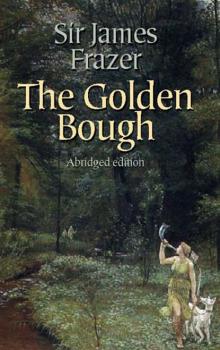Sir James George Frazer
Список книг автора Sir James George FrazerThe Golden Bough (Abridged)
Sir James George Frazer developed an affinity for classic literature at a young age, which developed into a very real talent through his schooling at Glasgow University and then Trinity College at Cambridge, where he remained as a Classics Fellow for all but one year of his life. After the success of his first novel, «Totemism», in 1887, Frazer set out to create what was to become his defining work, «The Golden Bough: A Study in Comparative Religion». Originally a two-volume edition, the work expanded into multiple volumes, which in 1922 he edited down to the most widely-read abridged version, which has been reproduced here for this edition. It was initially celebrated as a remarkable study of comparative anthropology, but was later discredited by scientists because Frazer did not follow standard scientific procedures. Nevertheless, it could not be denied the work was an incredible literary accomplishment, influential towards the development of Western thought and such great 20th century thinkers as Freud, Anatole France, Margaret Mead, and Oswald Spengler.
The Golden Bough
Sir James George Frazer developed an affinity for classic literature at a young age, which developed into a very real talent through his schooling at Glasgow University and then Trinity College at Cambridge, where he remained as a Classics Fellow for all but one year of his life. After the success of his first novel, “Totemism”, in 1887, Frazer set out to create what was to become his defining work, “The Golden Bough: A Study in Comparative Religion”. Originally a two-volume edition, the work expanded into multiple volumes, which in 1922 he edited down to the most widely-read abridged version, which has been reproduced here for this edition. It was initially celebrated as a remarkable study of comparative anthropology, but was later discredited by scientists because Frazer did not follow standard scientific procedures. Nevertheless, it could not be denied that the work was an incredible literary accomplishment. “The Golden Bough” is an important work which has heavily influenced many modern writers and philosophers.
The Golden Bough
A certain sacred tree was forbidden to the touch, save only for runaway slaves: if the slave could break off a branch — The Golden Bough — he could challenge the tree's attendant priest to mortal combat. If victorious, the slave would replace the priest as King of the Woods — until his lethal defeat by another bearer of The Golden Bough. Sir James George Frazer, an expert in myth and religion, was so intrigued by this tale from classical mythology that he spent more than a quarter-century investigating its genesis. His 1890 study of the cults, rites, and myths of antiquity, The Golden Bough, offers a monumental exploration of these customs and their parallels with early Christianity. A pioneer of social anthropology, Frazer's definitions of such terms as «magic,» «religion,» and «science» proved highly useful to his successors in the field, and his explications of the ancient legends profoundly influenced generations of prominent psychologists, writers, and poets. This abridgment of his multivolume magnum opus omits footnotes and occasionally condenses text; nevertheless, as the author himself observed, all of the original work's main principles remain intact, along with ample illustrative examples.


